|
Books Should Be Free Loyal Books Free Public Domain Audiobooks & eBook Downloads |
|
|
Books Should Be Free Loyal Books Free Public Domain Audiobooks & eBook Downloads |
|
Religion |
|---|
|
Book type:
Sort by:
View by:
|
By: Richard Francis Burton (1821-1890) | |
|---|---|
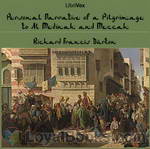 Personal Narrative of a Pilgrimage to Al-madinah and Meccah
Personal Narrative of a Pilgrimage to Al-madinah and Meccah
Sir Richard Francis Burton (1821 – 1890) was an English explorer, translator, writer, soldier, orientalist, ethnologist, linguist, poet, hypnotist, fencer and diplomat. He was known for his travels and explorations within Asia and Africa as well as his extraordinary knowledge of languages and cultures. According to one count, he spoke 29 European, Asian, and African languages.Burton's best-known achievements include traveling in disguise to Mecca, The Book of One Thousand Nights and A Night, an... | |
By: Peter H. Ditchfield (1854-1930) | |
|---|---|
 The Parish Clerk
The Parish Clerk
| |
By: Donald Alexander Mackenzie (1873-1936) | |
|---|---|
 Myths and Legends: Myths of Babylonia and Assyria
Myths and Legends: Myths of Babylonia and Assyria
Donald Alexander Mackenzie was a Scottish journalist and prolific writer on religion, mythology and anthropology in the early 20th century. His works included Indian Myth and Legend, Celtic Folklore and Myths of China and Japan.As well as writing books, articles and poems, he often gave lectures, and also broadcast talks on Celtic mythology.This volume deals with the myths and legends of Babylonia and Assyria, and as these reflect the civilization in which they developed, a historical narrative has been provided, beginning with the early Sumerian Age and concluding with the periods of the Persian and Grecian Empires... | |
By: Baron Paul Henri Thiry d'Holbach (1723-1789) | |
|---|---|
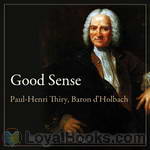 Good Sense
Good Sense
In 1770, Baron D'Holbach published his masterpiece, "Systeme de la Nature", which for a long time passed as the posthumous work of M. de Mirabaud. That text-book of "Atheistical Philosophy" caused a great sensation, and two years later, 1772, the Baron published this excellent abridgment of it, freed from arbitrary ideas; and by its clearness of expression, facility, and precision of style, rendered it most suitable for the average student. This text is based on an undated English translation of "Le Bon Sens" published c. 1900. The name of the translator was not stated. | |
By: Robert Hugh Benson (1871-1914) | |
|---|---|
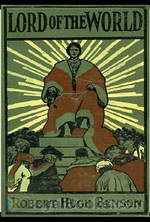 Lord of the World
Lord of the World
“Mr. Benson sees the world, four or five generations hence, free at last from all minor quarrels, and ranged against itself in two camps, Humanitarianism for those who believe in no divinity but that of man, Catholicism for those who believe in no divinity but that of God.” This apocalyptic novel from the early 1900's is sometimes deemed one of the first modern dystopias. | |
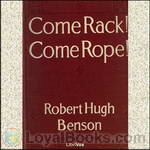 Come Rack! Come Rope!
Come Rack! Come Rope!
Come Rack! Come Rope! is a historical novel by the English priest and writer Robert Hugh Benson, a convert to Catholicism from Anglicanism. Set in Derbyshire at the time of the Elizabethan persecution of Catholics, when being or harboring a priest was considered treason and was punishable with death, it tells the story of two young lovers who give up their chance of happiness together, choosing instead to face imprisonment and martyrdom, so that "God's will" may be done.The book was written nearly nine years after Benson's reception into the Catholic Church... | |
 Lourdes
Lourdes
| |
 Dawn of All
Dawn of All
In a former book, called "Lord of the World," I attempted to sketch the kind of developments a hundred years hence which, I thought, might reasonably be expected if the present lines of what is called "modern thought" were only prolonged far enough; and I was informed repeatedly that the effect of the book was exceedingly depressing and discouraging to optimistic Christians. In the present book I am attempting -- also in parable form -- not in the least to withdraw anything that I said in the former,... | |
By: Bahá’u'lláh | |
|---|---|
 The Persian Hidden Words
The Persian Hidden Words
Kalimát-i-Maknúnih or The Hidden Words is a book written in Baghdad around 1857 by Bahá’u'lláh, the founder of the Bahá’í Faith. This work is written partly in Arabic and partly in Persian. The Hidden Words is written in the form of a collection of short utterances, 71 in Arabic and 82 in Persian, in which Bahá’u'lláh claims to have taken the basic essence of certain spiritual truths and written them in brief form. Bahá’ís are advised by `Abdu’l-Bahá, the son of Bahá’u'lláh to read them every day and every night and to implement its latent wisdom into their daily lives... | |
By: Charles F. Dole | |
|---|---|
 The Coming People
The Coming People
Dole briefly sketches the history of life, and shows how it has a definite direction - toward the survival of the kind and gentle people. It's a challenging, and quite persuasive argument, and also a much needed one in light of the dog-eat-dog theories out there. Dole shows that in our evolving society, our traditional understanding of "survival of the fittest" needs to be updated. A book that was way ahead of its time, yet so suited to it. Some may argue that - since he was writing The Coming People before the first two world wars - that he was obviously wrong... | |
By: Edward Granville Browne | |
|---|---|
 A year amongst the Persians; impressions as to the life, character, and thought
A year amongst the Persians; impressions as to the life, character, and thought
Edward Granville Browne (1862 – 1926), born in Stouts Hill, Uley, Gloucestershire, England, was a British orientalist who published numerous articles and books of academic value, mainly in the areas of history and literature. His works are respected for their scholarship, uniqueness, and style. He published in areas which few other Western scholars had explored to any sufficient degree. He used a language and style that showed high respect for everybody, even toward those he personally did not view in positive light... | |
By: Alexander Maclaren (1826-1910) | |
|---|---|
 The Life of David As Reflected in His Psalms
The Life of David As Reflected in His Psalms
| |
By: Mildred Duff (1860-1932) | |
|---|---|
 The Bible in Its Making - The Most Wonderful Book in the World
The Bible in Its Making - The Most Wonderful Book in the World
One great universal law runs through the realm of nature. Our Saviour gave it in a sentence: 'First the blade, then the ear, after that the full corn in the ear.' It is with the desire to show that the same law rules in another of God's creations — The Bible — that this little volume has been prepared. The Bible has as literally 'grown' as has an oak tree; and probably there is no more likeness between the Bible as we know it to-day and its earliest beginning, than we find between the mighty tree, and the acorn from which it sprang... | |
By: Benjamin Disraeli (1804-1881) | |
|---|---|
 Tancred Or, The New Crusade
Tancred Or, The New Crusade
| |
By: Anne Catherine Emmerich (1774-1824) | |
|---|---|
 The Nativity of our Lord Jesus Christ
The Nativity of our Lord Jesus Christ
Anne Catherine Emmerich (1774-1824) was a German Augustinian nun who had visions about Christ's life and death. This book relates her visions regarding the Blessed Virgin Mary, from her marriage to St. Joseph to the events surrounding the birth of Christ.(Introduction by Ann Boulais) | |
By: Annie Wood Besant (1847-1933) | |
|---|---|
 Esoteric Christianity, or The Lesser Mysteries
Esoteric Christianity, or The Lesser Mysteries
| |
By: Annie Besant (1847-1933) | |
|---|---|
 My Path to Atheism
My Path to Atheism
My Path to Atheism is a remarkable document in many ways, not least that it was written by a woman in Victorian England, not the most open free-thinking of societies, especially for women at that time. It needed a remarkable woman to write such a revolutionary and to 19th century minds, heretical document in a society where the Church had such a stronghold. Besant herself was originally married to a clergyman, but her increasingly anti-religious views and writings led to a legal separation. She went... | |
By: John M. Rodwell (1808-1900) | |
|---|---|
 The Koran (Al-Qur'an)
The Koran (Al-Qur'an)
| |
 The Koran (Al-Qur'an)
The Koran (Al-Qur'an)
| |
By: Lord Alfred Tennyson (1809-1892) | |
|---|---|
 Beauties of Tennyson
Beauties of Tennyson
A collection of Tennyson's poetry : 1 The Brook - 00:16 2 Song from "Maud" - 1:20 3 A Farewell - 2:34 4 Song from “Maud” - 3:26 5 Break, Break, Break - 4:53 6 From “Locksley Hall”- 5:43 7 Song from “Maud” - 6:43 8 Song from “The Princess” - 7:43 9 Lillian - 8:37 10 Ring out, Wild Bells - 9:52 11 From “The Princess” - 11:27 12 Song From “The Princess” - 12:43 13 From “Enoch Arden” - 13:58 14 From “Enoch Arden” - 15:36 15 The Charge of the Light Brigade- 16:56 16 From “The May Queen” - 18:51 17 Song from “The Princess” - 19:36 18 From “Harold” - 20:14 19 From “The Revenge” - 21:28 (From Sam Stinsson) | |
By: Edward Sylvester Ellis (1840-1916) | |
|---|---|
 Through Forest and Fire Wild-Woods Series No. 1
Through Forest and Fire Wild-Woods Series No. 1
| |
By: George Douglas Watson (1845-1924) | |
|---|---|
 Soul Food
Soul Food
A guide for Christians to walk a godly life. Covering various practical and spiritual topics. | |
By: Albertus Magnus (1193-1280) | |
|---|---|
 On Union With God
On Union With God
Surely the most deeply-rooted need of the human soul, its purest aspiration, is for the closest possible union with God. As one turns over the pages of this little work, written by Blessed Albert the Great towards the end of his life, when that great soul had ripened and matured, one feels that here indeed is the ideal of one's hopes. (From the Preface) | |
By: Thomas Kempis (1380?-1471) | |
|---|---|
 The Chronicle of the Canons Regular of Mount St. Agnes
The Chronicle of the Canons Regular of Mount St. Agnes
| |
By: Charles E. Jefferson (1860-1937) | |
|---|---|
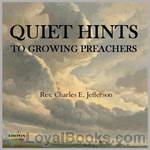 Quiet Hints to Growing Preachers
Quiet Hints to Growing Preachers
Charles Edward Jefferson was pastor of the Broadway Tabernacle in Brooklyn, New York for 33 years. In Quiet Hints, published in 1901, he provided guidance to young preachers on what we would today call ministerial deportment, an old-fashioned word that refers to how a man carries himself, how he presents himself, his manners, his bearing, his habits, and his whole approach to life. Jefferson wrote in short, pithy statements that encapsulate practical truth in just a few words. | |
By: F. Max Müller (1823-1900) | |
|---|---|
 Chips From A German Workshop - Volume I Essays on the Science of Religion
Chips From A German Workshop - Volume I Essays on the Science of Religion
| |
 The Silesian Horseherd - Questions of the Hour
The Silesian Horseherd - Questions of the Hour
| |
By: George Henry Borrow (1803-1881) | |
|---|---|
 Letters of George Borrow to the British and Foreign Bible Society
Letters of George Borrow to the British and Foreign Bible Society
| |
By: Joseph Smith, Jr. (1805-1844) | |
|---|---|
 Book of Mormon
Book of Mormon
The Book of Mormon is a volume of holy scripture comparable to the Bible, used by Latter Day Saints. It is a record of God’s dealings with the ancient inhabitants of the Americas.The book was written by ancient prophets through the spirit of prophecy and revelation. It gives an account of two great civilizations. One came from Jerusalem in 600 B.C., and afterward separated into two nations, known as the Nephites and the Lamanites. The other came much earlier when the Lord confounded the tongues at the Tower of Babel... | |